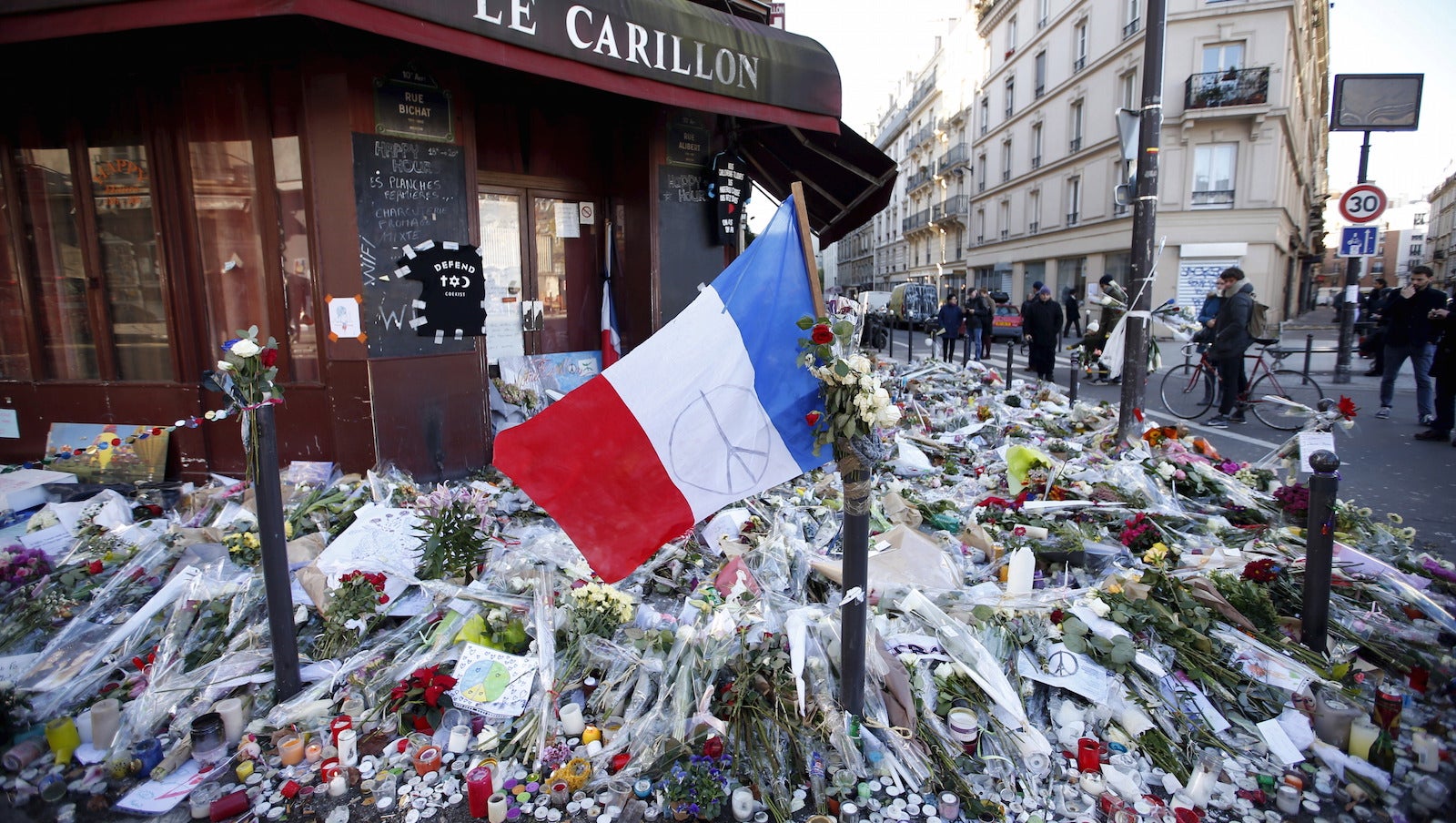After the Paris attacks, I’m scared—but that doesn’t mean I’m giving in
I have lived in Paris for 10 years, and I’ve never felt more Parisian than today. I am alive, and I am afraid. I’m not a direct victim of the attacks of Nov. 13, but for a week now, I have been thinking of a sentence from a childhood La Fontaine fable: “Ils ne mouraient pas tous, mais tous étaient frappés.” Not all died, but all were struck.


I have lived in Paris for 10 years, and I’ve never felt more Parisian than today. I am alive, and I am afraid. I’m not a direct victim of the attacks of Nov. 13, but for a week now, I have been thinking of a sentence from a childhood La Fontaine fable: “Ils ne mouraient pas tous, mais tous étaient frappés.” Not all died, but all were struck.
As an article in French newspaper Le Monde argued two days after the attacks, the terrorists’ target was an entire generation. My generation.
On the night of the Paris attacks, I had planned to go to a friend’s housewarming party in east Paris. First I met my girlfriend at Place de la République, where young people gather every Friday night, then stopped at a store in Rue de La Fontaine au Roi. It was 7:30 pm. On our right, an Italian restaurant with a purple storefront, Casa Nostra. On our left, the brasserie La Bonne Bière. Here, two hours later, five people would be shot dead.
At the party, around 10pm a friend mentioned that president François Hollande was being evacuated from the Stade de France, north of Paris. Rumors began to stream in of shootings in the city, and of hostages taken in Le Bataclan. Cell phones began buzzing. Radio news replaced music, and we listened to it sitting on the floor.
One guest was missing—a girl who had stopped at a concert in Le Bataclan, on the way. She was still there, we realized, as the radio began to tell of dozens and dozens of victims in the concert hall.
The president spoke on national broadcast. He was speaking with a great deal of emotion and seemed to me to be afraid. It’s unusual to hear that in a politician’s voice. But that night, I found it utterly normal. We felt fear too, and closed the shutters of the living-room as if that could help.
At 3am, my girlfriend and I decided to go home in a taxi. The road was abnormally empty. When the driver stopped at the end of our street, we ran the rest of the way.
In the days immediately after the attacks, city officials asked Parisians to stay indoors, unless it was “absolutely necessary” to go out. Since Friday, I haven’t used the subway. I have stayed at home, except when I had to go to work, I haven’t seen anyone except for my colleagues. At the entrance of my office, the usual guard now wears a bulletproof vest.
These days, I struggle to focus on anything for more than a few minutes. I’m sad, I’m angry, and I’m scared. But I am also frustrated, because newspapers and tv shows keep exhorting us not to be afraid, not to let these gruesome acts change the way we live. Every article I read seems to say “We must not give in to fear, we must stand, we must forge through.”
I want to forge through. I want to go to the places that have been attacked, to light candles, to lay white lilies. But I would also like to believe that it is ok to be afraid right now—that fear is not a weakness.
Fear does not mean giving in. Fear is a natural human response to an overwhelming situation, and the more you try to ignore it, the more uncontrollable it becomes. We are not unscathed—all were struck, one way or another. Admitting it will make us heal stronger, perhaps even more united.
Things can go awry at any time, I’ve learned through several great losses in my life. These attacks were another a reminder of that truth. It is frightening. And if I learn to live with that fear, I will love life even more.
Follow Charlie on Twitter at @CharlieVDK.